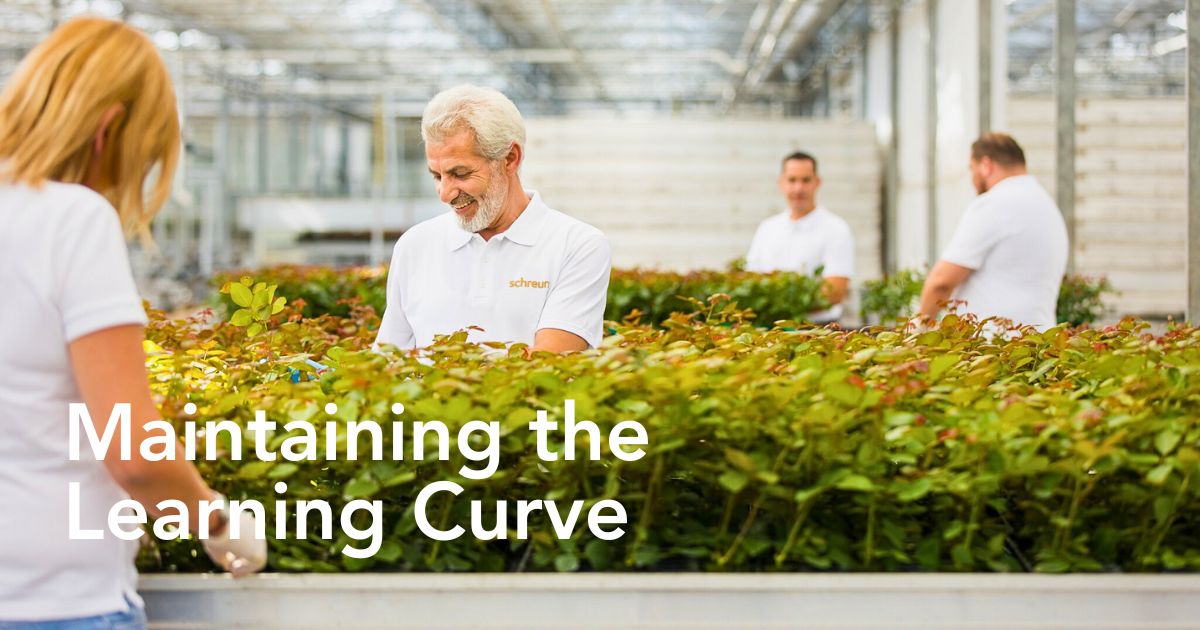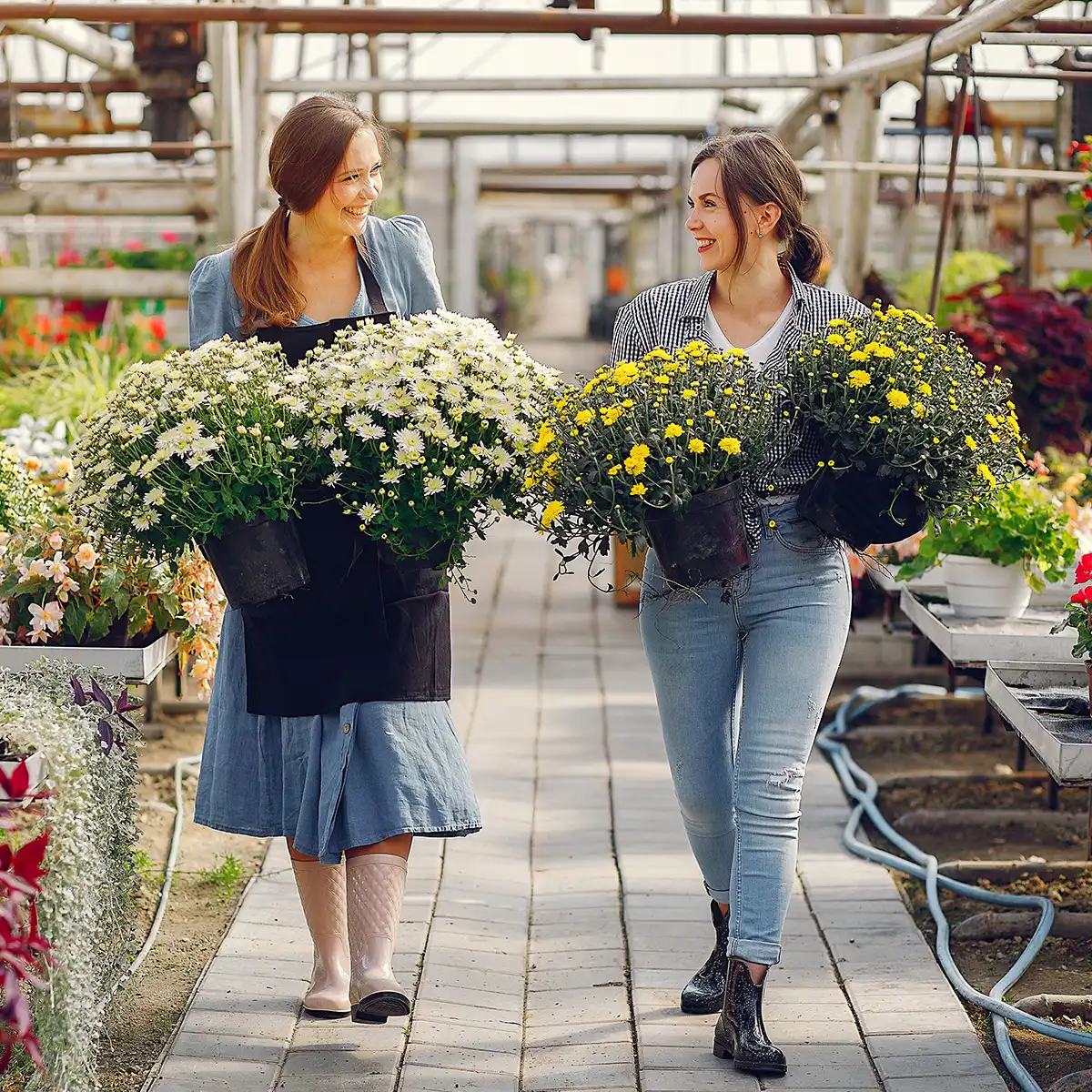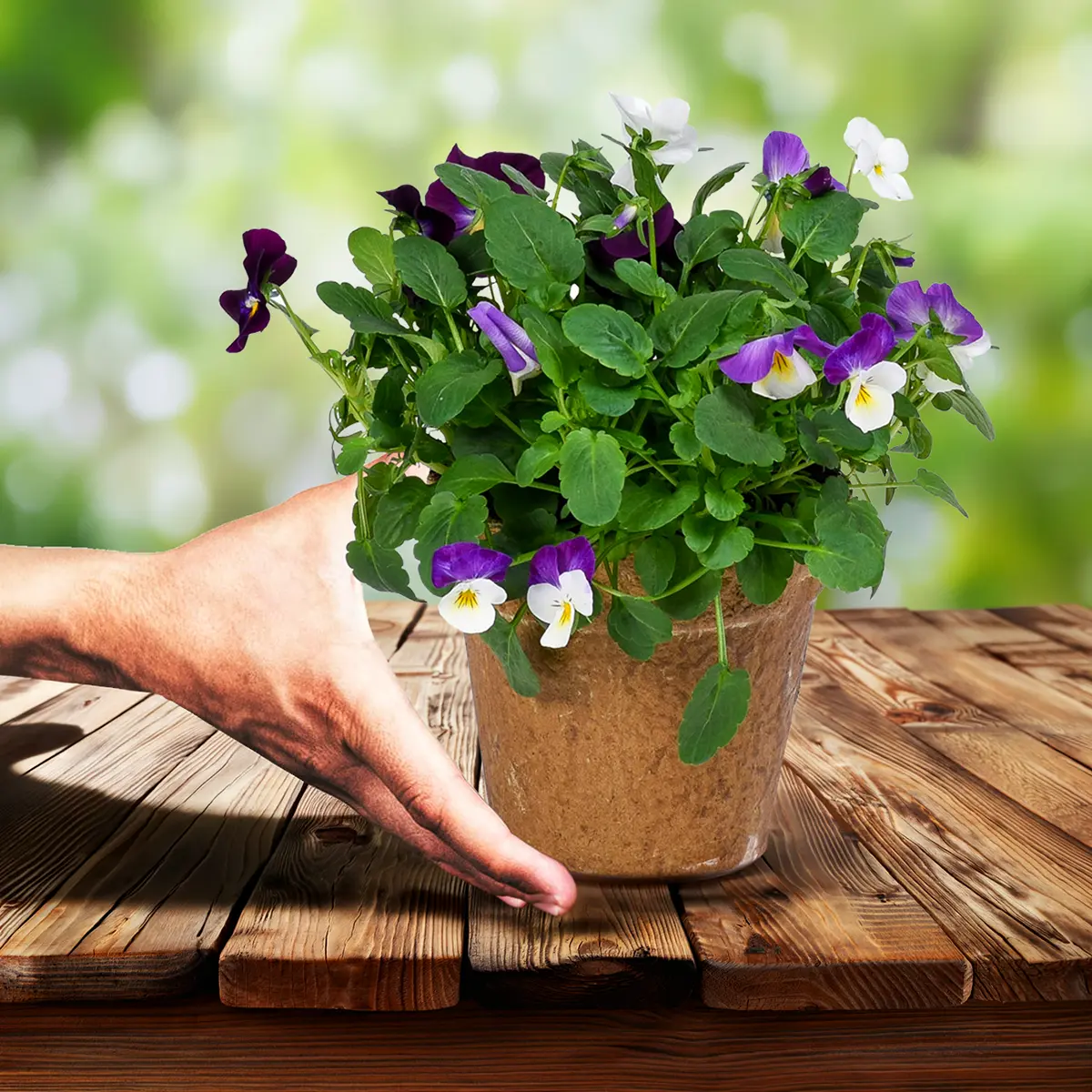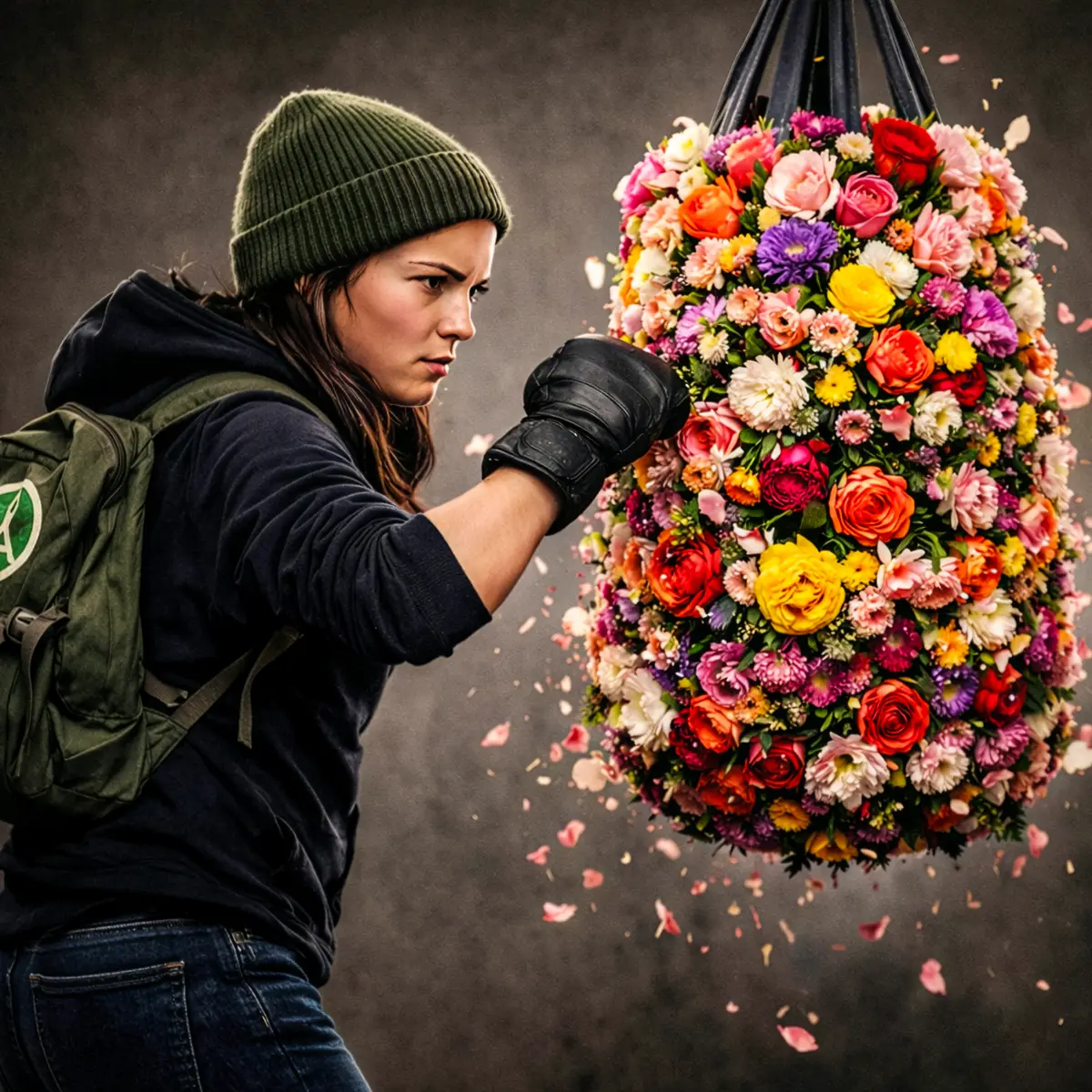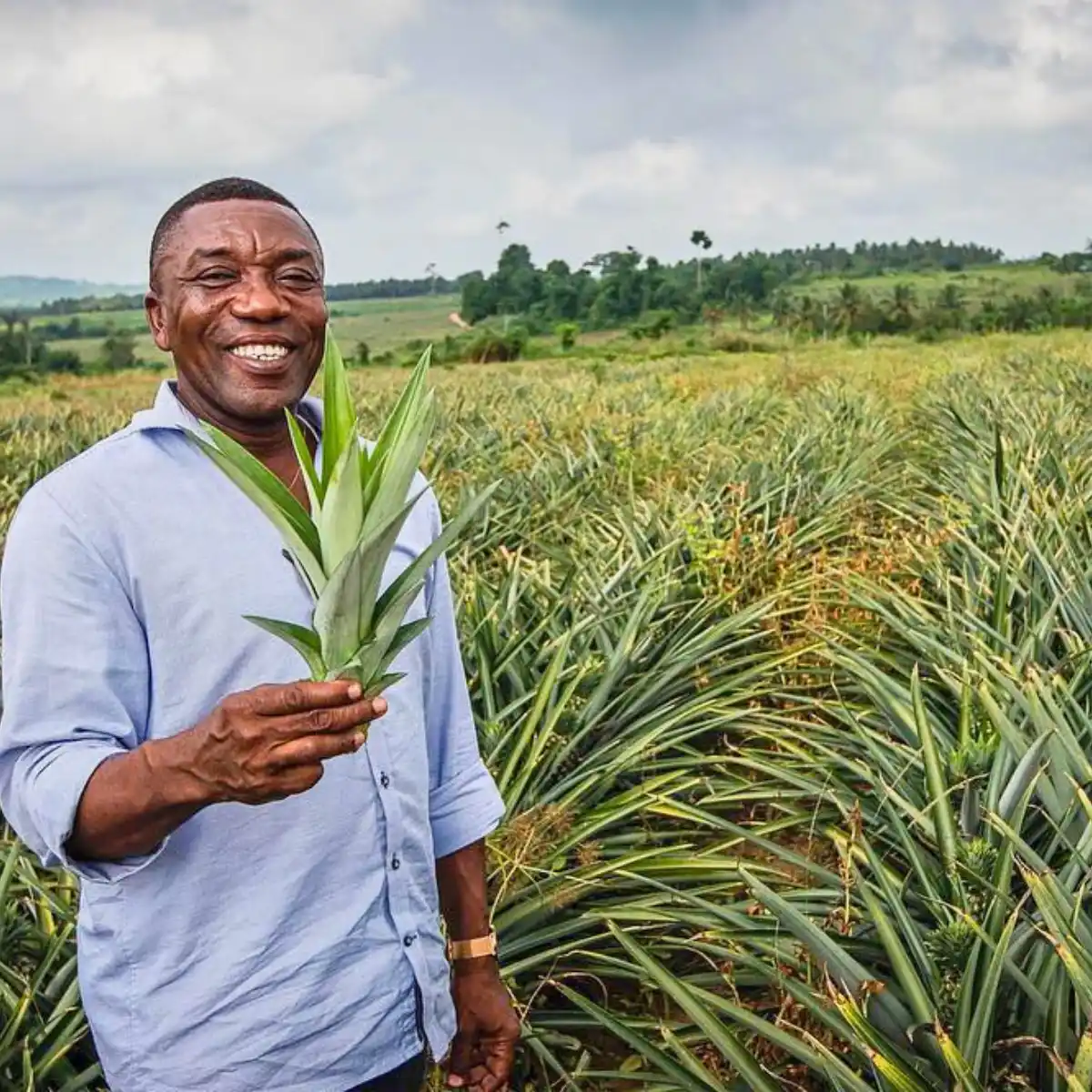Modern floriculture demands environmental responsibility, social equity, and economic viability. It requires a workforce equipped not just with traditional floriculture knowledge but also in-depth understanding of sustainable practices, technological innovations, and evolving market dynamics. Employees' continued education is therefore a key component upon which sustainable flower production rests. This makes an industry historically dependent on resource-intensive practices, capable of meeting all the demands, while conserving the natural ecosystems upon which it depends.
Sustainable floriculture, therefore, relies on workforces that can master factors like advanced greenhouse technology, navigate complex certification schemes, and adapt to climate volatility. Continued employee education gives breeders, growers, exporters, wholesalers, retailers, and floral designers the knowledge to reduce resource use, protect worker welfare, and satisfy increasingly discerning markets. Tying professional development to environmental, social, and economic goals means the sector can transform itself from an extractive model into a regenerative one that meets consumer expectations for ethically produced floral products.
Why Continuous Learning in Floriculture?
The urgency for employee continued education in floriculture becomes apparent when examining the varied challenges facing the industry. Climate change has altered traditional growing patterns, requiring workers to understand new cultivation techniques adapted to changing environmental conditions. Simultaneously, consumer demand for sustainably produced flowers has created market pressures for certification compliance, traceability systems, and environmentally responsible production methods.
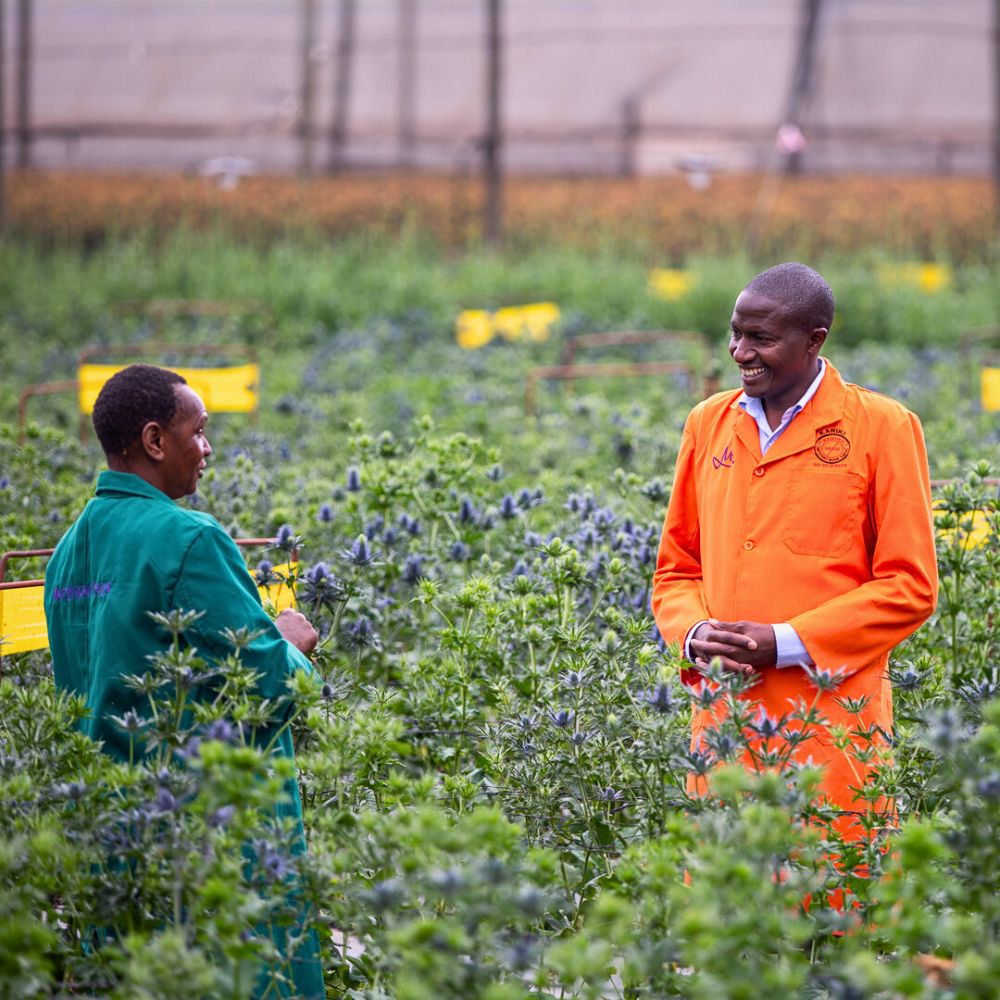
Modern floriculture operations must navigate often difficult sustainability frameworks that encompass water conservation, energy efficiency, waste reduction, and carbon footprint minimization. These requirements demand workers who understand not only basic horticultural principles but also advanced concepts in resource management, environmental monitoring, and sustainable technology implementation. The Kenya Flower Council (KFC) certification system, for instance, requires comprehensive knowledge of social, environmental, and agricultural practices that extend outside traditional flower growing skills.
The technical nature of contemporary flower production facilities further emphasizes the need for ongoing education. Operations in greenhouses now incorporate computer-controlled climate systems, automated irrigation networks, and precision nutrient delivery mechanisms that require workers to develop technical competencies previously unnecessary in floriculture. Without continuous training programs, employees cannot effectively operate these systems or contribute to the optimization processes that drive both productivity and sustainability outcomes.
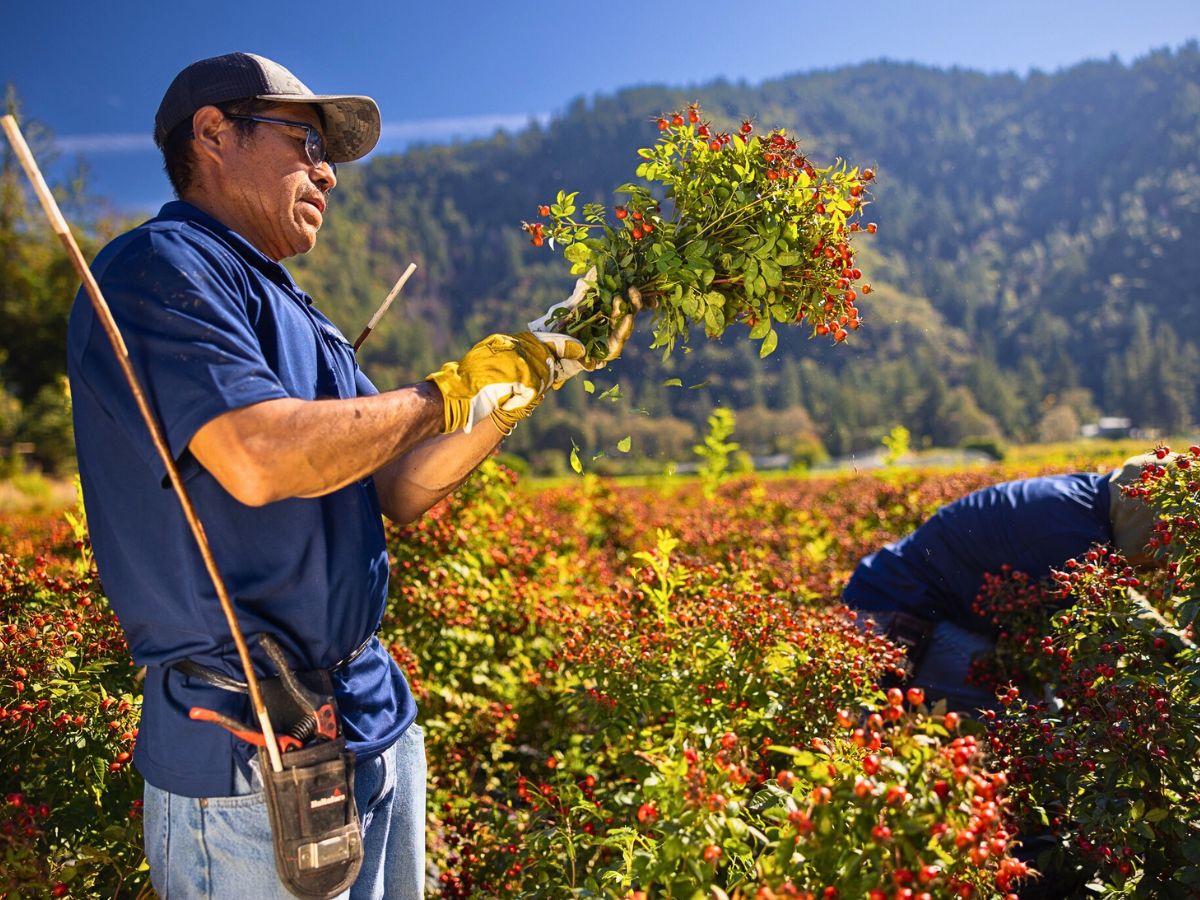
Employee continued education also addresses the crucial need for innovation within the sector. The development of new sustainable practices, adaptation of emerging technologies, and implementation of circular economy principles require a workforce capable of creative problem-solving and continuous improvement. Research conducted by the American Floral Endowment (AFE) shows that companies investing in employee education programs experience significantly higher rates of innovation adoption and sustainability implementation.
The social dimension of sustainability is also important and requires educational intervention. Modern floriculture operations must ensure fair labor practices, promote gender equity, and provide safe working conditions while nurturing professional development opportunities for all employees. This all-inclusive approach to social responsibility requires supervisors and managers trained in human resource management, occupational health and safety, and inclusive leadership practices.
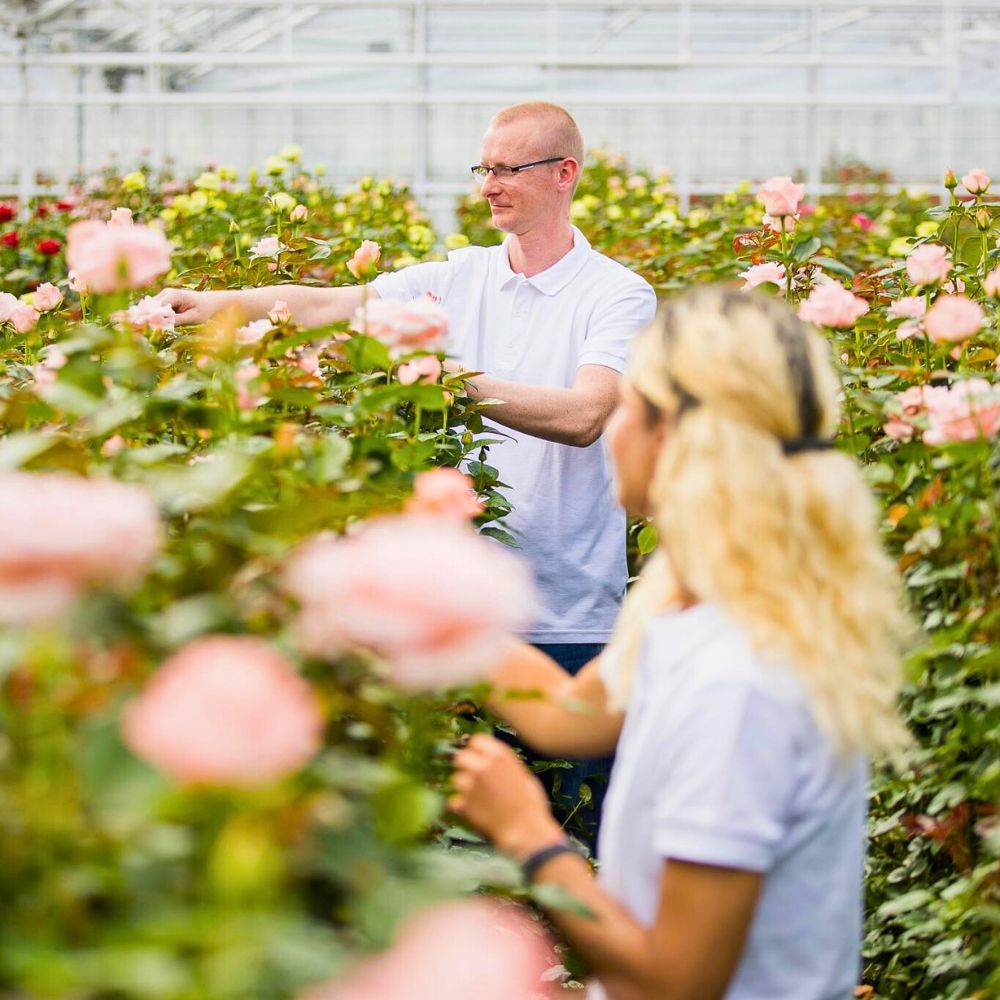
Consumers, meanwhile, demand verifiable proof of good environmental management and labor practices, making compliance with standards like Kenya Flower Council’s Flowers and Ornamentals Sustainability Standard (KFC-FOSS) essential for market access. These often overlapping pressures mean yesterday’s skills are quickly obsolete. And without structured learning models, flower farms risk legal non-compliance, quality loss, and reputational damage.
Why Continuous Learning Delivers Sustainability
Employee education directly threads through each pillar of sustainability. Technically trained staff can, for example, calibrate sensor-based irrigation to cut water use by double-digit percentages while maintaining stem length and petal turgor, protecting watersheds and profit margins simultaneously. Knowledge of integrated pest management (IPM) allows swift identification of threshold levels, reducing broad-spectrum pesticide sprays that endanger pollinators and worker health.
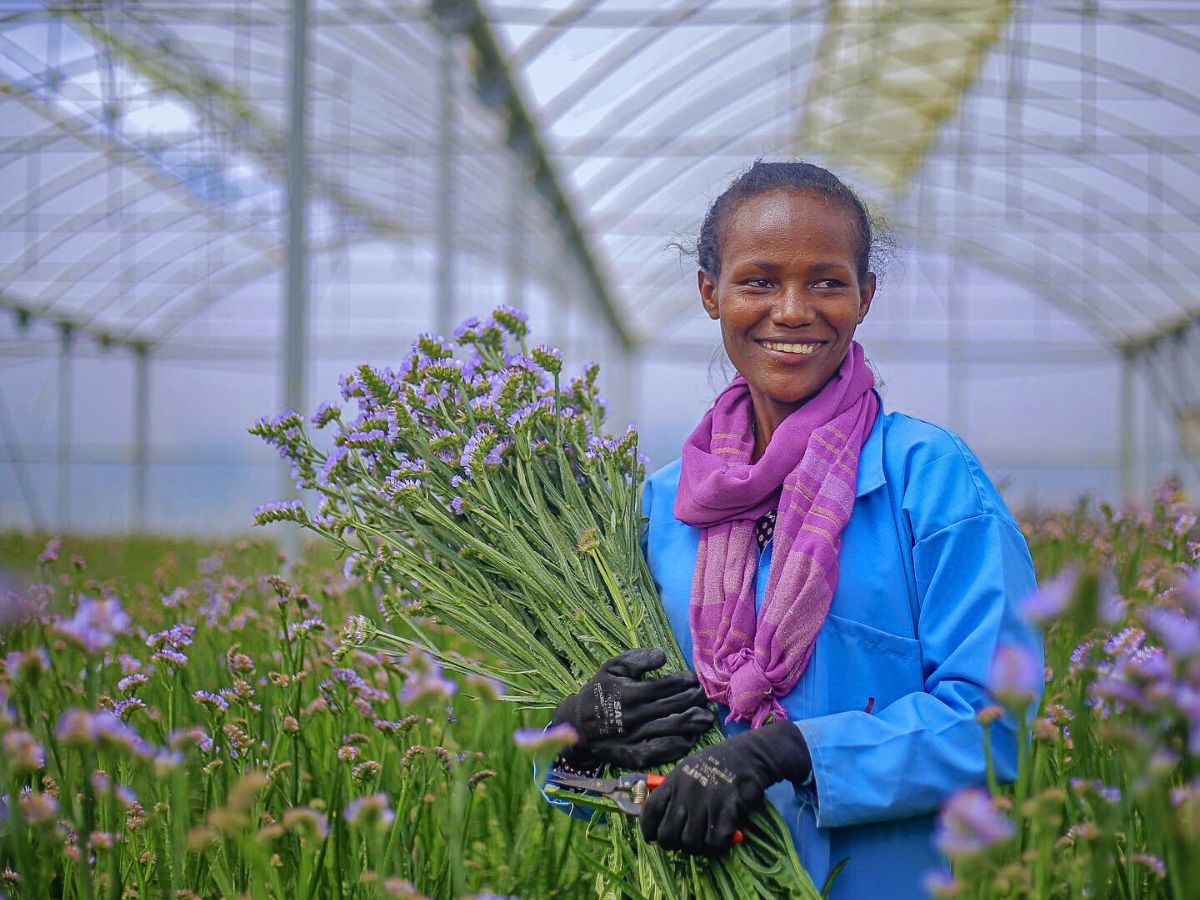
Socially, training in occupational safety, gender equity, and grievance mechanisms, on the other hand, embeds fair-labor principles into daily routines, a prerequisite for certification programs rated highly by the Floriculture Sustainability Initiative (FSI). Education also accelerates innovation. Studies funded by the AFE show that operations that allocate budget for training quickly adopt practices like energy-saving lighting and biodegradable sleeves sooner than their peers, thus decreasing carbon footprints and landfill flows. Continuous learning is, therefore, both defense—confirming compliance—and sword—opening up new efficiencies.
Several Institutions Advance Continuous Workforce Education
A growing ecosystem of organizations underwrites this continuous learning requirement. AFE’s Sustainabloom program curates free guides on topics, including cold-chain management, refining peer-reviewed research into practical step-by-step workflows accessible to farms of any scale. The platform’s partnership with GLOBALG.A.P. spreads these resources, aligning training content with global certification criteria.
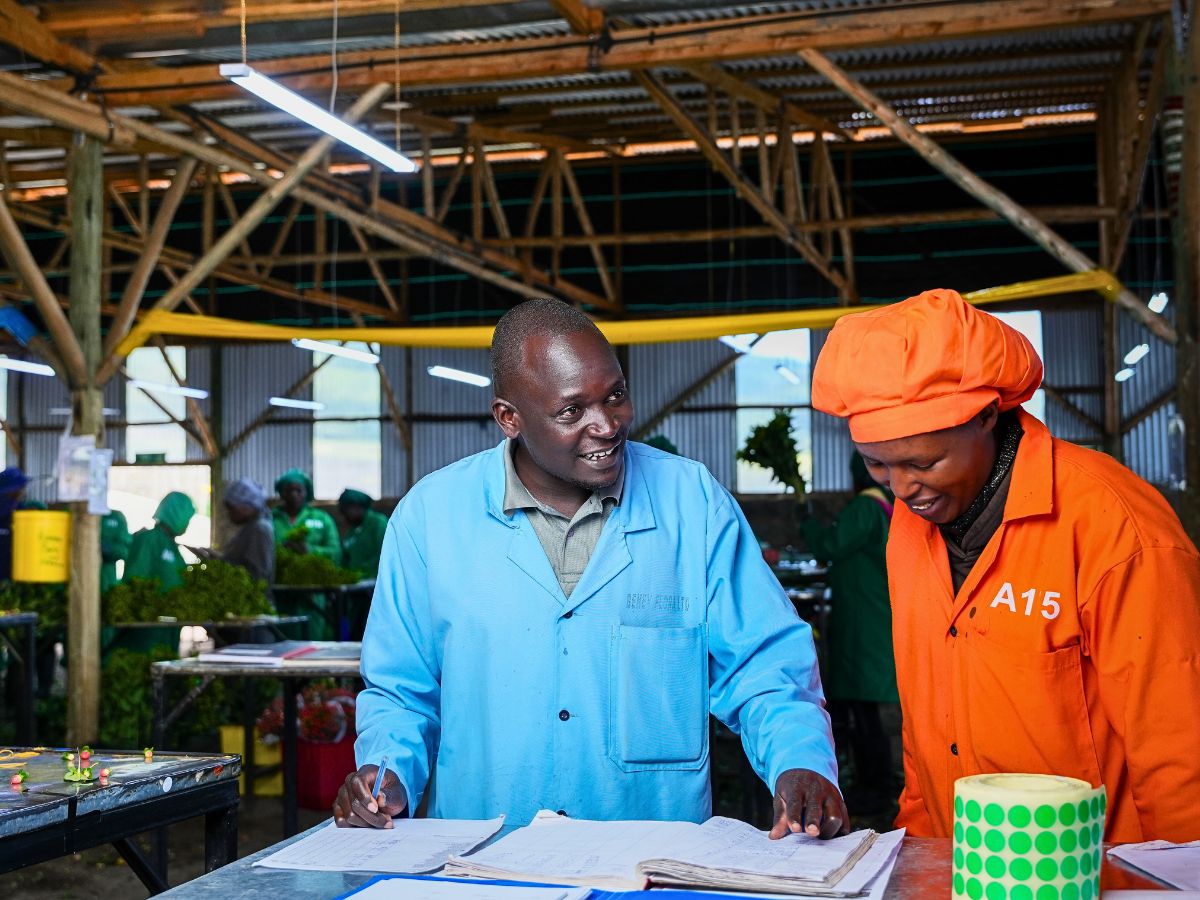
In East Africa, KFC couples its audit program with on-farm workshops that coach supervisors in record-keeping, safe chemical handling, and biodiversity conservation, ensuring alignment with its rigorous FOSS benchmark. This mix of theory and field demonstration ensures Kenyan farms supply more than 40% of Europe’s cut-flower imports while maintaining a reputational edge for responsible production.
Design-centric education advances on a parallel track. The American Institute of Floral Designers requires members to document continuing education units periodically, sustaining high artistic standards and propagating sustainable design trends like foam-free mechanics and locally sourced floral material. Its online modules and hands-on partner schools extend access even outside North America, making circular-economy design techniques a universal norm.
Universities add formal scaffolding to this aspect. Wageningen University, Mississippi State University, the University of North Carolina, and the University of Nairobi, among others, often do research on sustainability analytics, life-cycle assessment, and greenhouse engineering, structuring these into their horticulture curricula. This feeds the industry with graduates able to translate research advances into commercial practice.
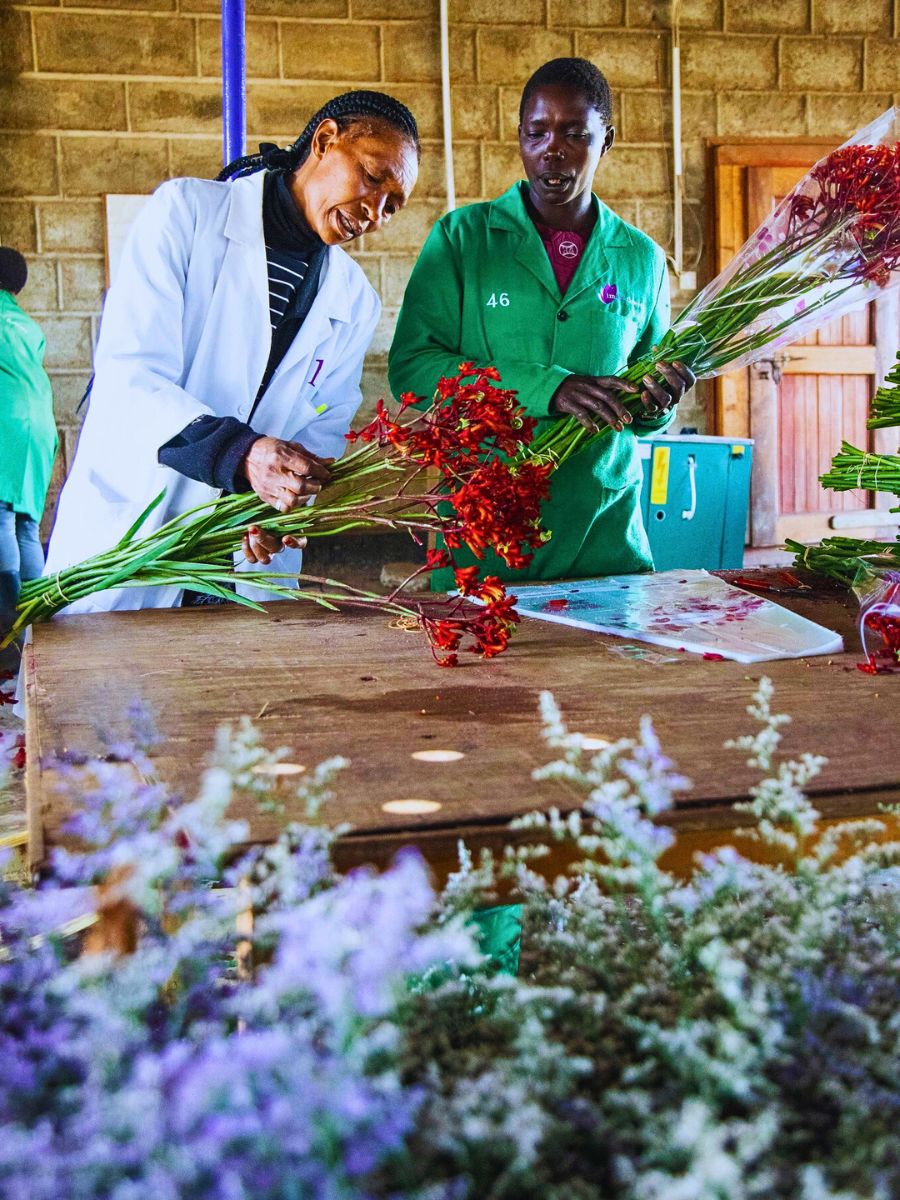
Economic, Social, and Environmental Payoffs
Returns on training investment become noticeable quickly. They manifest through improved operational efficiency, reduced resource consumption, enhanced product quality, and increased market access opportunities. They also generate substantial economic and environmental benefits that strengthen the business case for sustainable floriculture operations.
Kenyan farms implementing data-led irrigation after staff upskilling reported water savings of up to 18% and parallel energy reductions because pumps run fewer hours, cutting operating costs while improving FOSS audit scores. Sustainabloom’s post-harvest modules also help technicians trained to maintain certain specific metrics (say, a 0 °C to 2 °C cold chain) achieve vase-life gains, reducing shrink at wholesale hubs and improving retailer satisfaction.
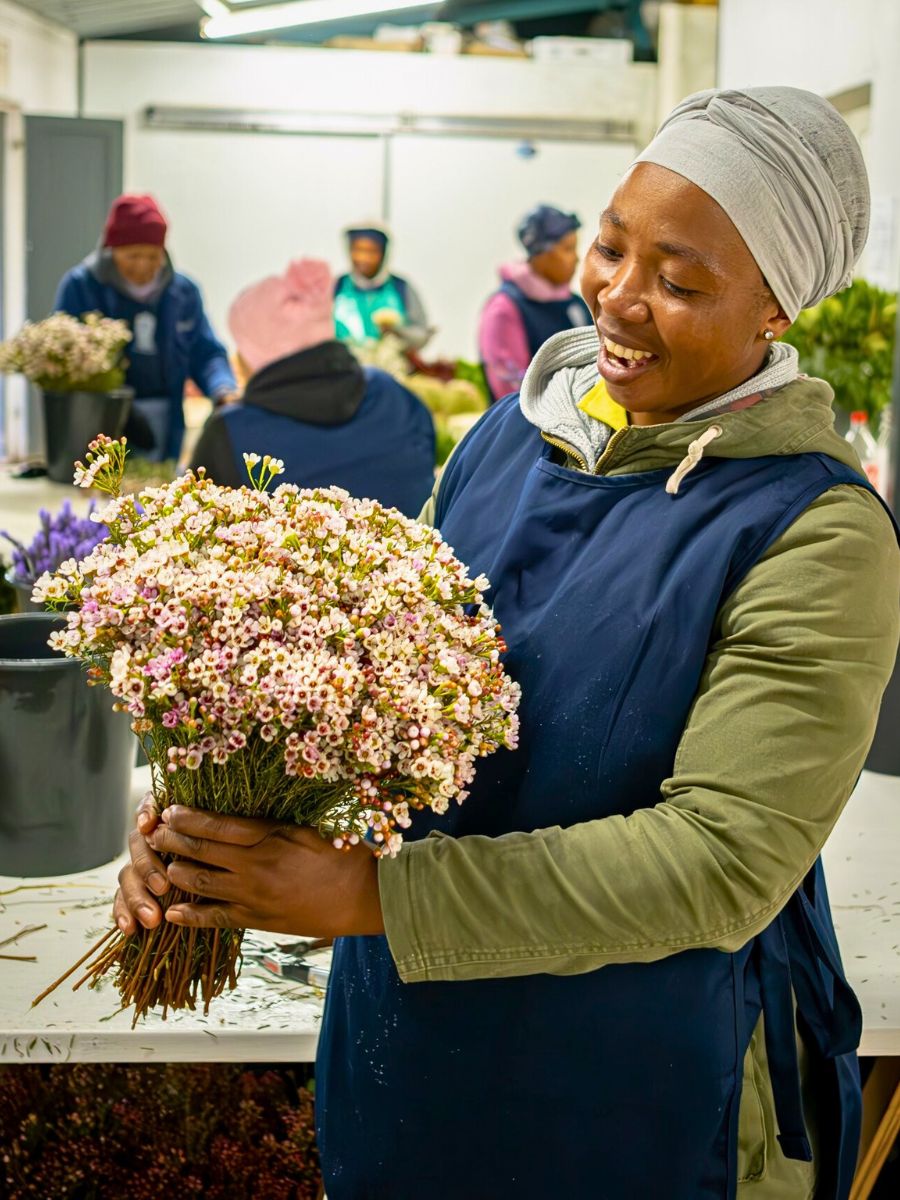
Still, operational efficiency improvements result directly from employee education programs that develop skills in resource management and process optimization. Workers trained in precision irrigation techniques can reduce water consumption significantly while maintaining optimal growing conditions. Similarly, education in IPM enables workers to minimize pesticide use while effectively controlling plant diseases and pest populations, reducing both costs and environmental impact.
Product quality enhancements achieved through employee education also translate into improved market positioning and premium pricing opportunities. Staff trained in proper post-harvest handling techniques can extend flower vase life significantly, reducing waste throughout the supply chain while increasing customer satisfaction. Kenya’s floriculture sector proves this principle, where intensive employee training in quality control and handling procedures has contributed to the industry's reputation for producing high-quality flowers that command premium prices in international markets.
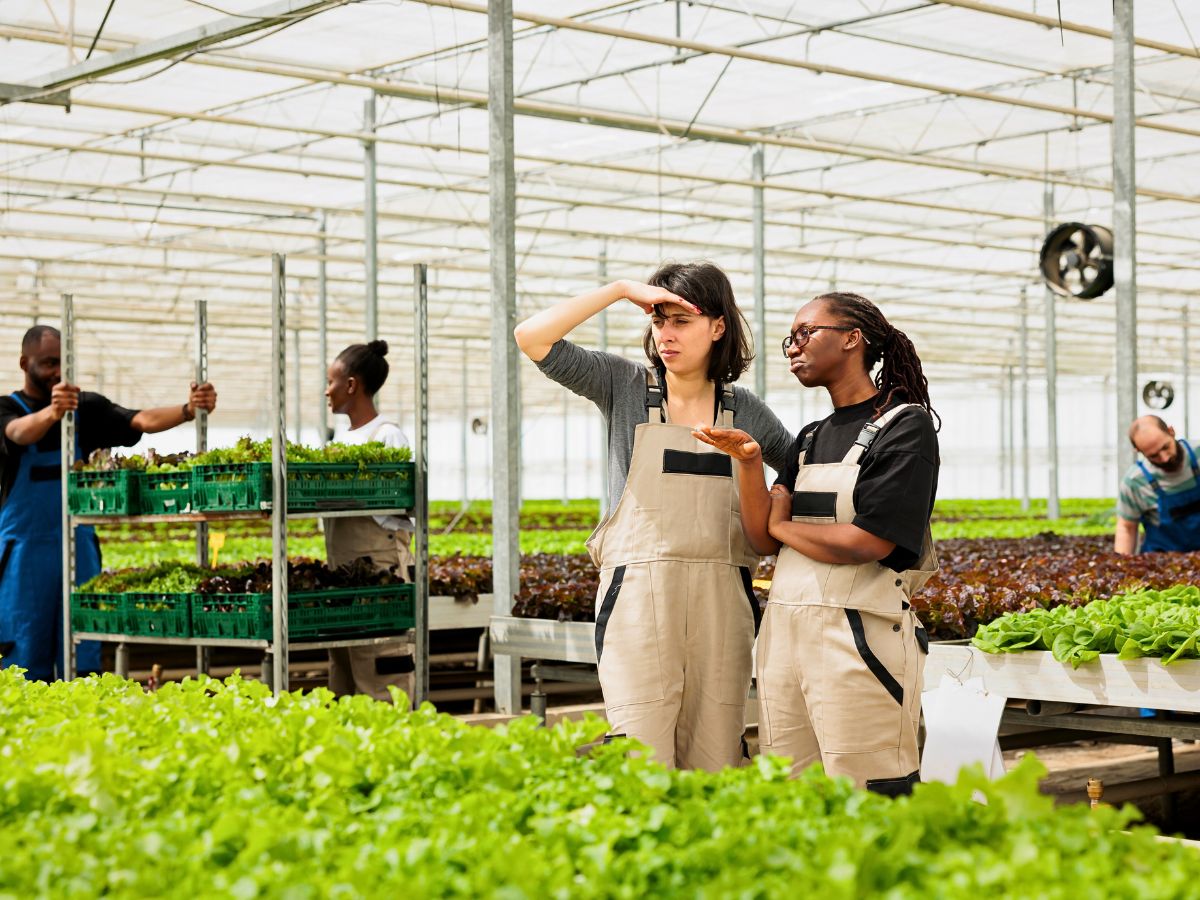
Market access benefits also emerge from employee education programs that develop competencies in certification compliance and sustainable practices. Many retailers now require supplier certification to sustainability standards, creating market advantages for operations with properly trained workforces capable of maintaining certification requirements. The FSI’s goal of achieving 90% certification coverage shows the market importance of educated workforces capable of meeting sustainability demands.
Energy efficiency improvements are another significant economic benefit of employee education programs. Employees trained in greenhouse management and climate control optimization can reduce energy consumption substantially while maintaining optimal growing conditions. The adoption of solar energy systems and energy-efficient technologies requires an educated workforce capable of operating and maintaining these systems effectively.
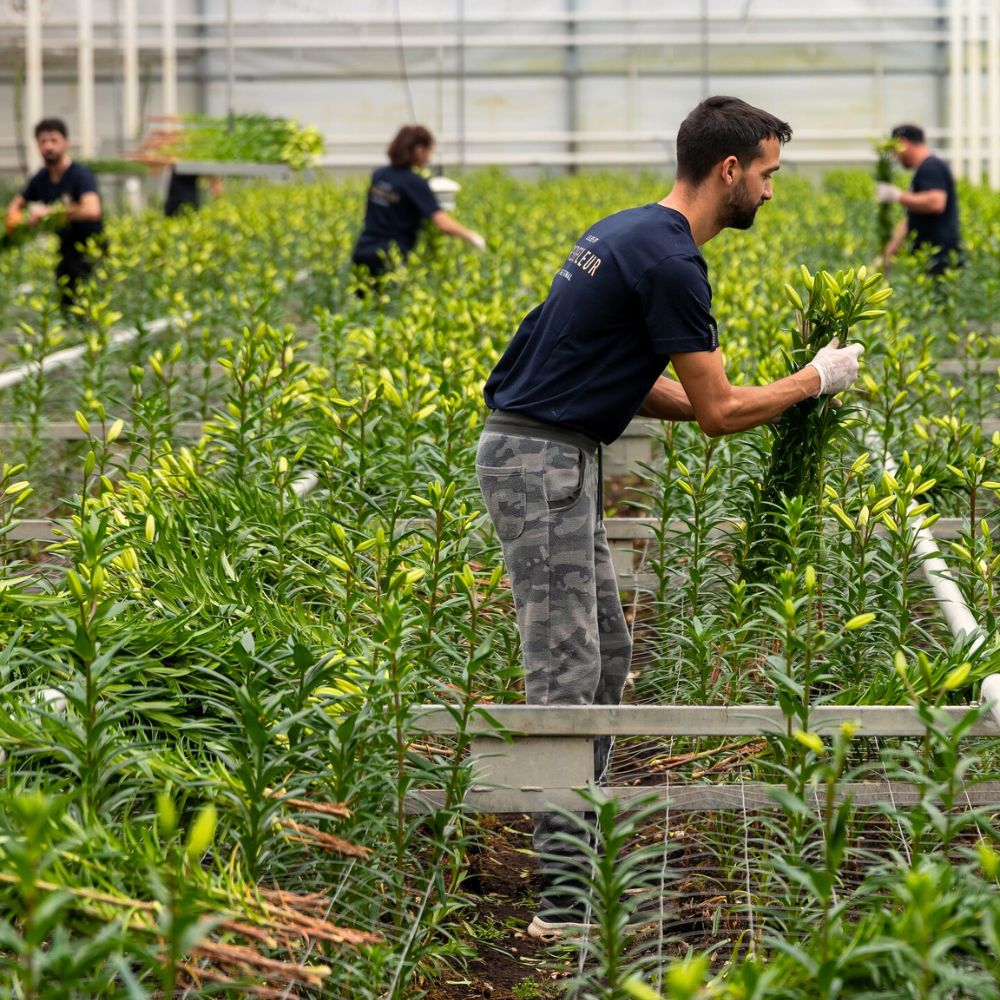
Likewise, waste reduction achieved through employee education programs generates both economic and environmental benefits. Flower workers trained in resource optimization and circular economy principles can identify opportunities to minimize waste streams, reduce disposal costs, and develop value-added applications for organic waste materials. Composting programs, recycling initiatives, and packaging reduction strategies all require educated workforces to implement effectively.
Innovation capacity building is another long-term benefit of employee education programs that enables flower companies to continuously improve their sustainability performance. Educated employees are more likely to identify opportunities for process improvements, suggest innovative solutions to operational challenges, and contribute to the development of new sustainable practices. This innovation capacity becomes increasingly important as the industry faces ever-evolving environmental challenges and market demands.
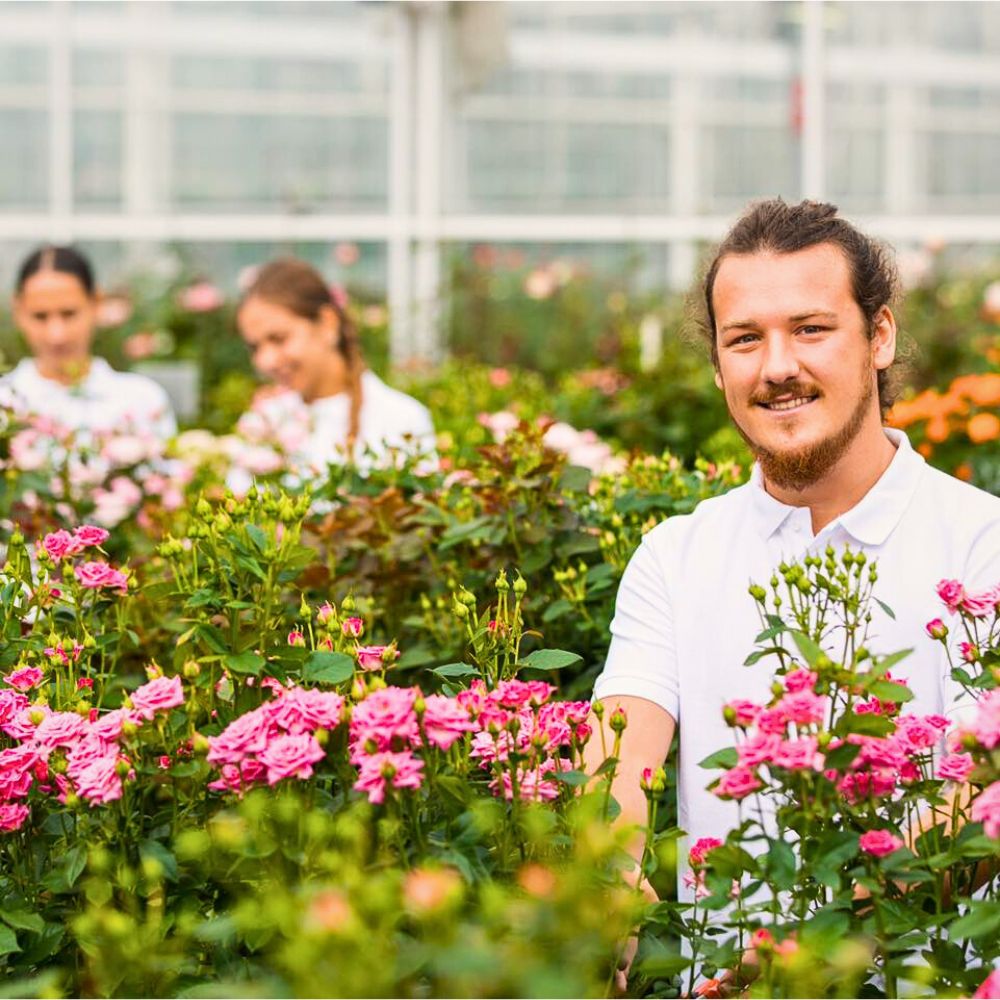
The social bonuses of training employees continually are equally evident. Certification schemes mandate regular refresher courses on protective equipment, significantly lowering incidences of chemical exposure. Programs that promote lifelong learning also improve retention: employees who see clear career ladders are less likely to migrate to rival flower farms and firms, stabilizing institutional knowledge. Community spillovers also arise as trained workers share knowledge with smallholder neighbors, upscaling sustainability.
Environmentally, the combined effect of educated staff and technology multiplies the impact. Precision fertigation guided by trained agronomists cuts nitrate runoff; climate-smart varietal selection guided by university extension courses reduces the need for heating. Each incremental gain—whether a 5% drop in fuel for pumps or a 10% cut in plastic waste—aggregates toward significantly lower sector-wide emissions.
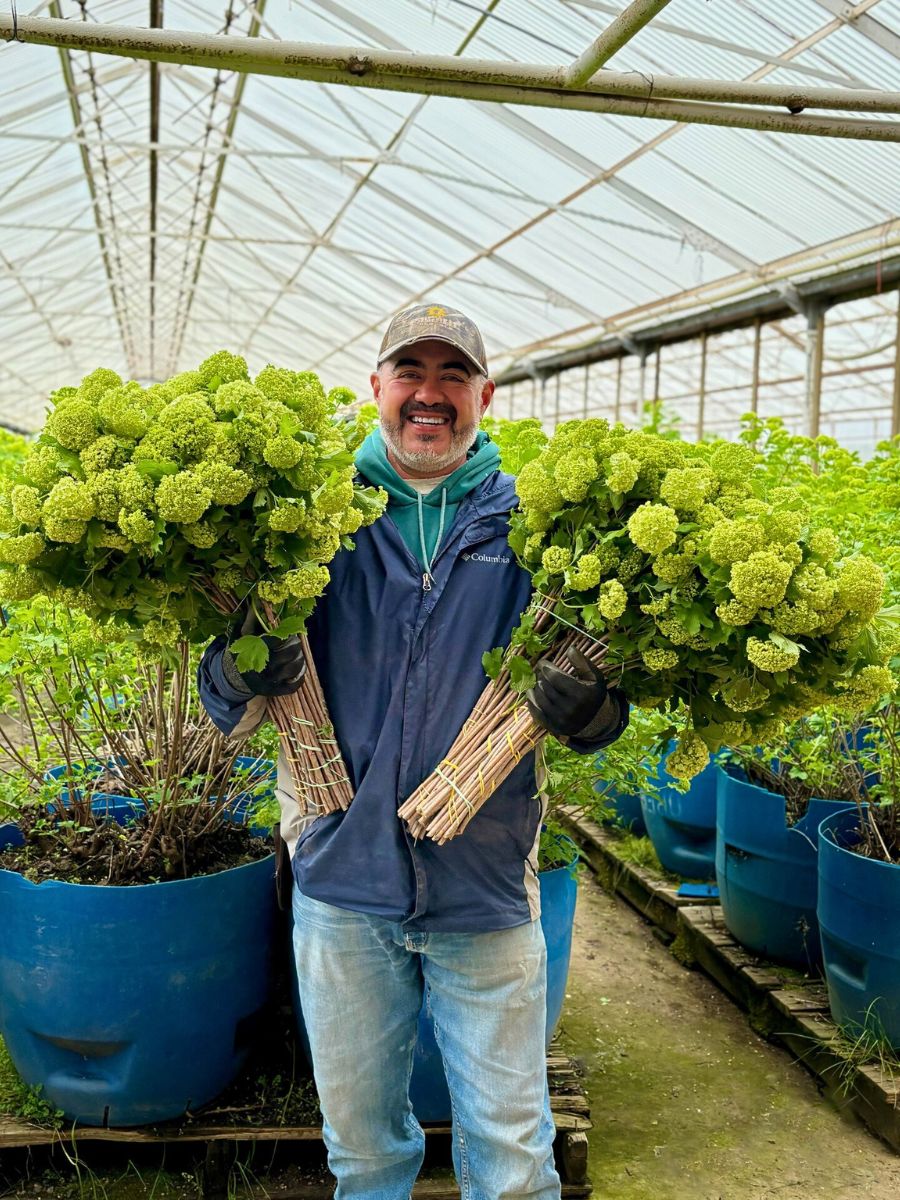
Sustainable Floriculture Future Depends on Continually Educating Workforces
The necessity for employee continued education in sustainable floriculture extends beyond simple skills training. It incorporates comprehensive workforce development that addresses the interconnected challenges facing the modern flower industry. Investment in employee education, in return, generates substantial gains in terms of operational efficiency, environmental performance, and market competitiveness while building the adaptive capacity required for long-term sustainability.
The future of sustainability floriculture, therefore, greatly depends on developing workforces equipped with knowledge, skills, and adaptive capacity needed to implement comprehensive sustainability strategies while maintaining operational viability and market attractiveness. This requires sustained commitment to employee continued education as a strategic priority, supported by suitable institutional frameworks and adequate financial investment.
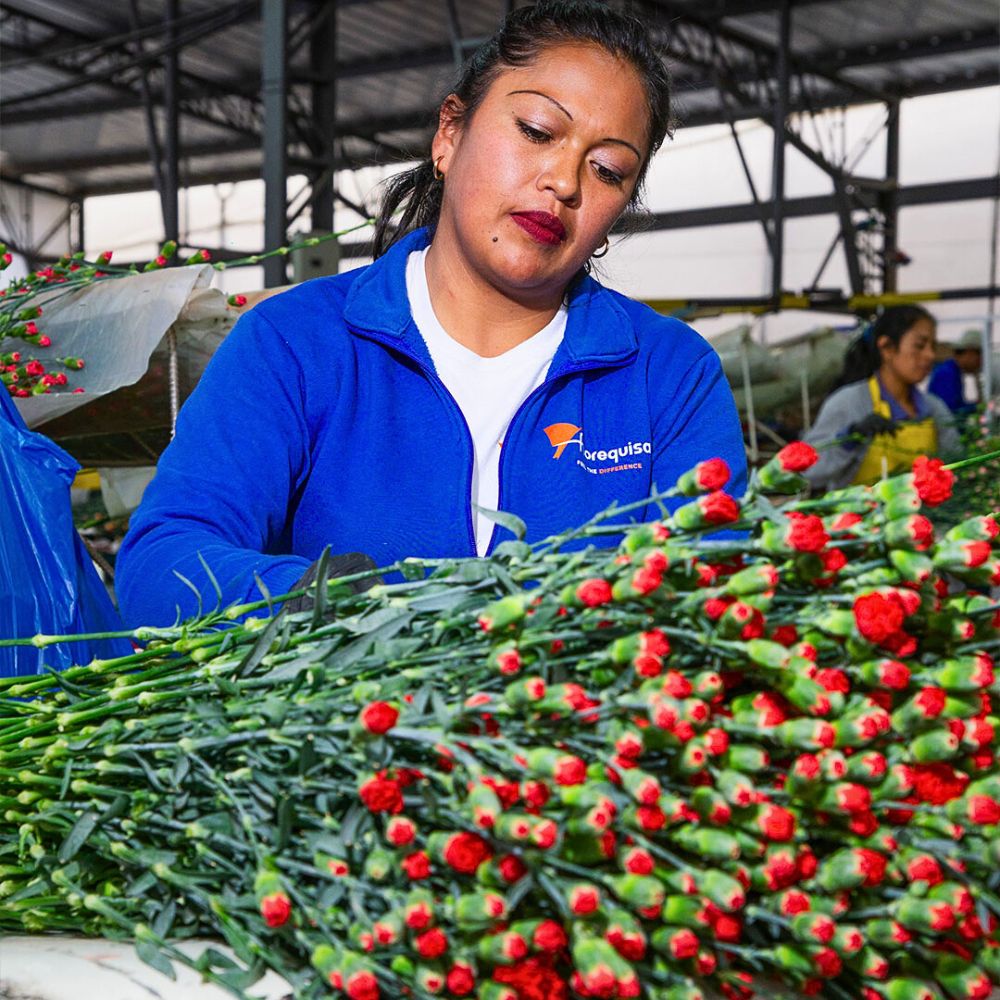
Floral businesses that prioritize educating their employees as a pillar of their sustainable practices have greater prospects of thriving in an increasingly demanding business environment. Not the same can certainly be said of those who fail to make this investment. The choice is therefore clear: embrace comprehensive workforce education as the basis for sustainable floral operations, or accept gradual sidelining.
Feature image by @schreursrosesandgerbera. Header image by @schreursrosesandgerbera.

